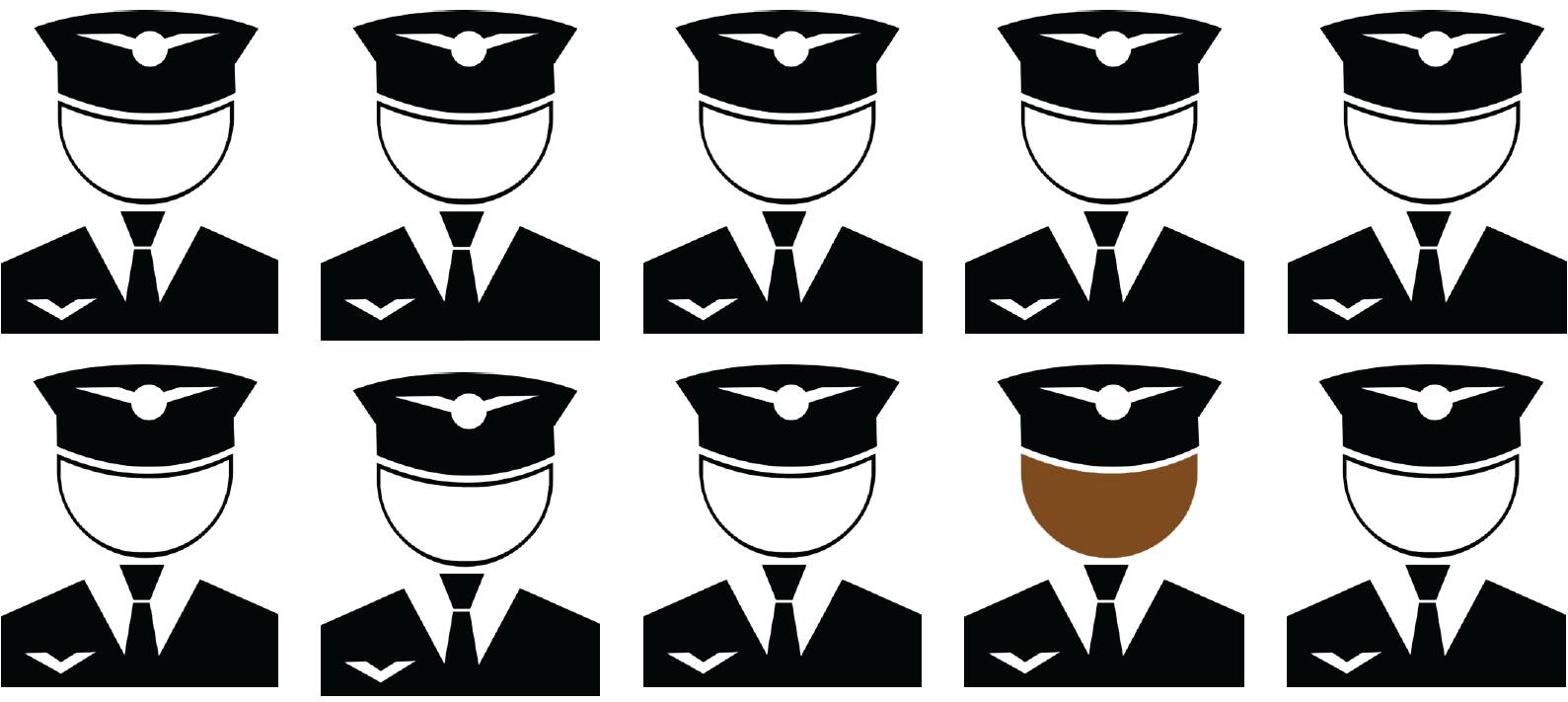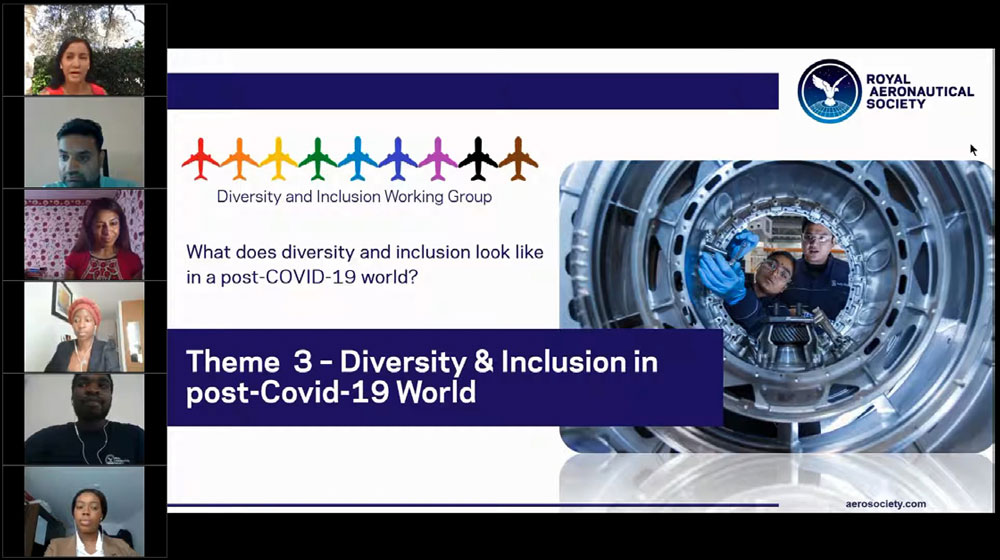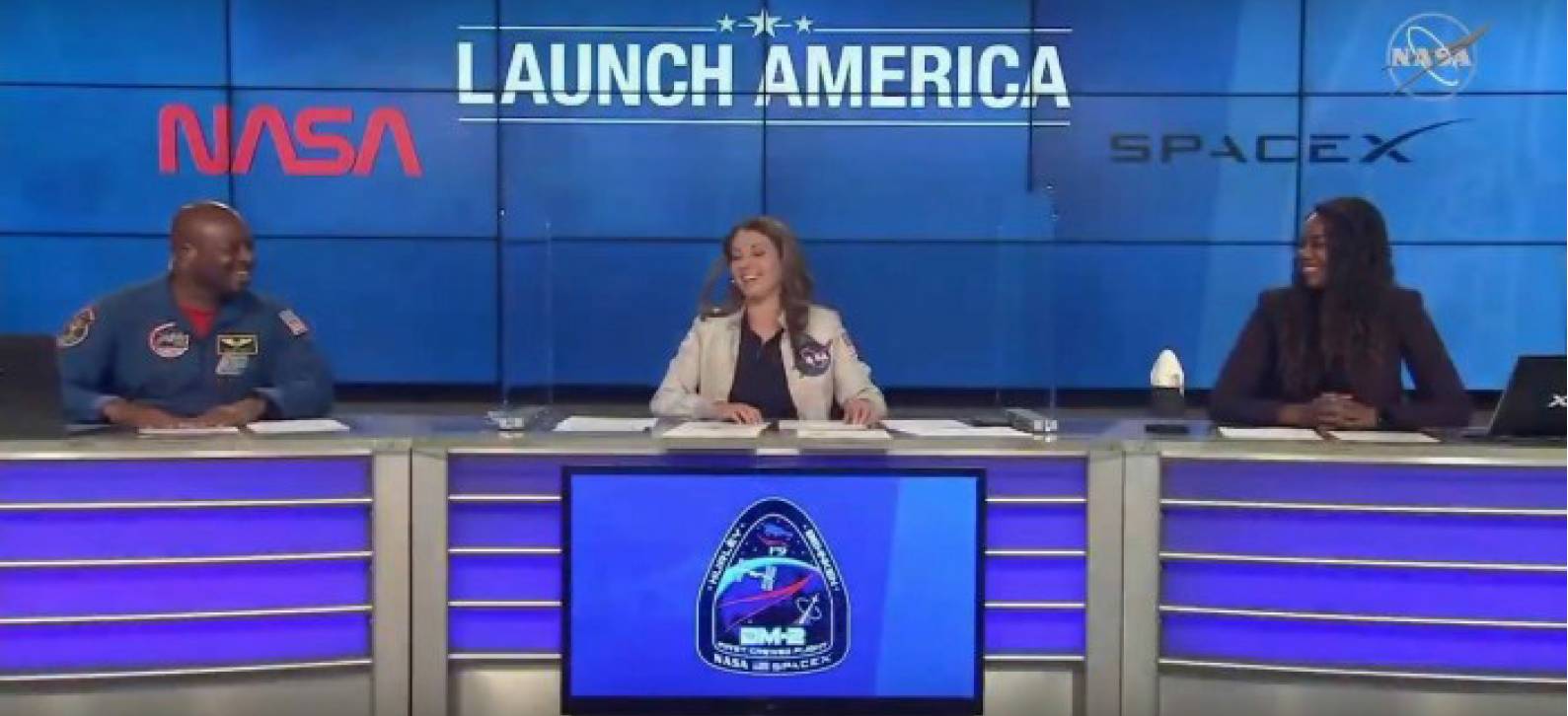The panel also discussed what organisations, groups and societies can do in order to create an environment in which everyone feels safe speaking up about banter and other associated behaviours. Abubakar raised the issue that, in many situations today, speaking up can have an adverse effect where the individual is labelled and stigmatised for doing so. The panel discussed this further, stressing that representation in HR is as important as representation within the technical fields. Ensuring diversity among those responsible for dealing with reports of discrimination creates a comfortable space for empathy and compassion where concerns are understood and taken seriously.
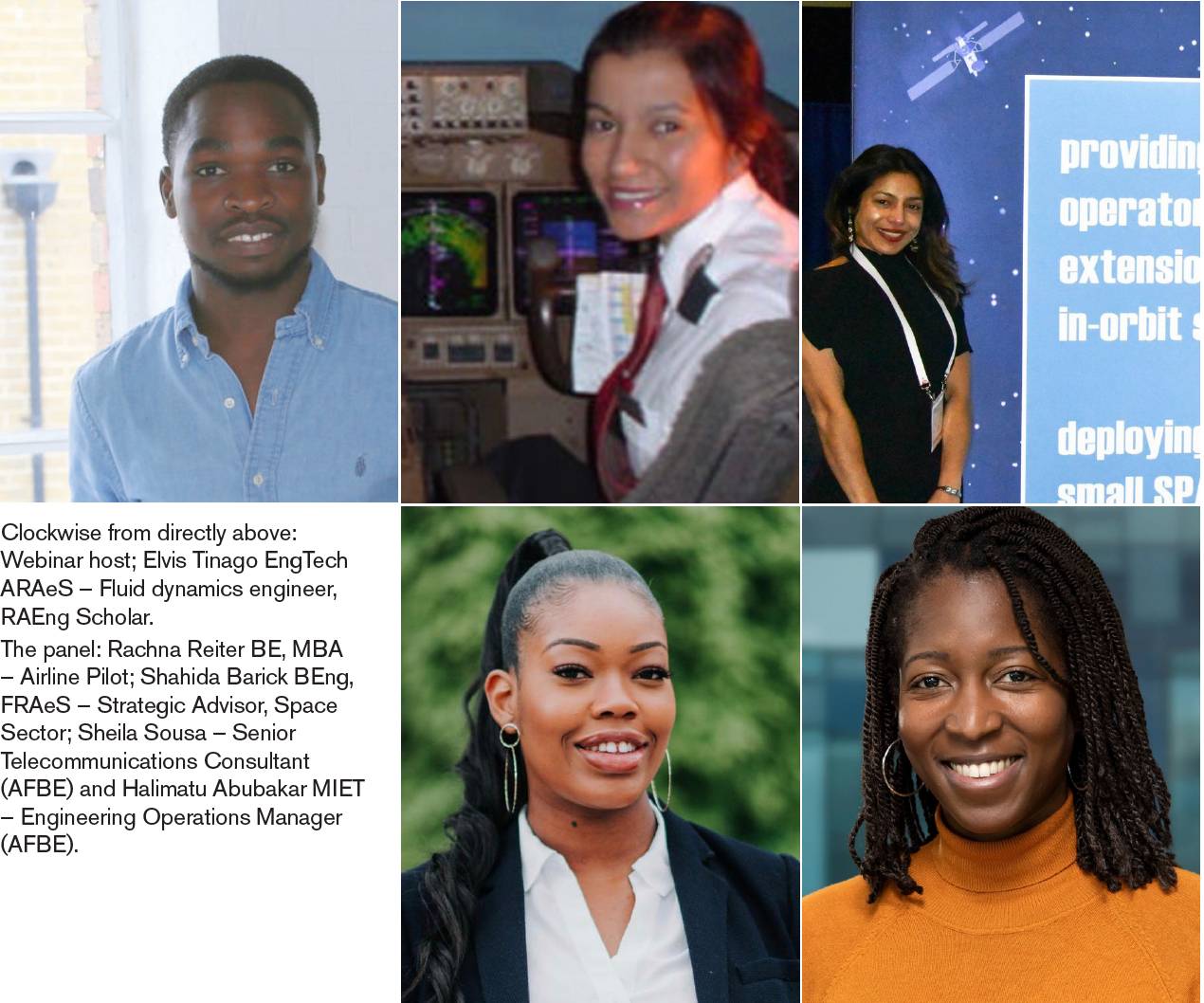
D&I in a post-Covid world
IMPROVING DIVERSITY AND INCLUSION IS ONE OF THE STRATEGIC AIMS OF THE ROYAL AERONAUTICAL SOCIETY AND IS A FUNDAMENTAL CONTRIBUTOR TO THE FUTURE OF THE ORGANISATION
The pandemic has exposed socio-economic imbalance issues in more ways than previously publicised. On 16 June 2020 the UK Government released a report revealing the negatively disproportionate effect of Covid-19 on the BAME communities. This topic was deliberated on by the panellists who called on organisations to recognise that there is a problem and to embed diversity & inclusion (D&I) as part of the social and economic recovery from the pandemic. The panellists particularly advocated for a shift in recruitment and promotion to showcase what is possible. The method discussed in the session involved instigating a change at all levels within an organisation with recognition of role models at different career stages being key to this change. The panel also addressed the fact that the economic climate has changed, particularly within aviation and, while many of these changes are heartbreaking, the industry’s recovery can be treated as an opportunity to enact the change that is required in a way that makes it resilient to future challenges and avoids repeating history.
Actions not statements
A common theme throughout the panel discussion and Q&A was focused on identifying the specific actions that can be taken to address issues faced by the BAME communities. Following the unlawful killing of George Floyd and the subsequent global Black Lives Matter protests, many organisations and institutions released public statements in support. However, it has been made abundantly clear that these statements are meaningless without action. Not only is action the only way real progress can be made but a public statement without following through with subsequent actions is perceived to be an act of publicity or following a trend, as opposed to representing the true morals of the organisation.
Numerous different actions were covered by the panellists who emphasised that lots of small steps by many can lead to big change for all. These smaller actions included:
- ‘Blind CVs’ where names are left off entirely to reduce the effect of bias in recruitment processes.
- Analysing the diversity of speakers and panellists at events and webinars and notifying organisers to help them improve.
- Making sure the information and resources that are put out on the topic are positive and are there to educate on the way forward, rather than to reprimand mistakes.
- Organisations assessing their current state and setting up targets using industry benchmarking frameworks.
- Releasing action plans to make the organisation publicly accountable.
- Publish diversity statistics above and beyond the government-mandated gender pay-gap statistics.
Sousa pointed to AFBE-UK Scotland’s ‘ACCESS.A Action Plan’ – an action plan for some simple and important steps that any organisation can take.
Encouraging the next generation
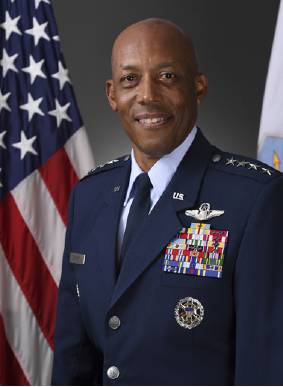 The inspirational General Charles Q Brown, Jr is the new Chief of Staff of the US Air Force. US Air Force
The inspirational General Charles Q Brown, Jr is the new Chief of Staff of the US Air Force. US Air Force
Many of the actions suggested by the panel had a focus on inspiring the next generation, including under-represented groups, to consider a career in STEM and aviation by presenting them as careers they can see themselves thrive in. It is important to show that aerospace, aviation and space are global industries in which everyone is welcome. Promotion across all ages, from primary school to university level, was frequently stressed and the push for extensive programmes with a wide variety of opportunities was encouraged.
To reach different audiences and schools who have not had visibility of STEM initiatives before, Abubakar recommended a prominent use of social media aimed at generating widespread awareness. The younger generations use a myriad of social media platforms that can be leveraged by the Society and the aerospace sectors to show that anyone and everyone can succeed in these industries. She also called on large organisations and government to sponsor and support these programmes to enable their success.
Diversity does not work without inclusion
Attracting and recruiting a more diverse workforce is only half the story – how do organisations keep their recruits and enable them to succeed in the workplace? Reiter advocated for internal support groups, stating that the Society’s D&I WG was a great initiative, as it allows the Society’s members to come together and work through solutions on how to diversify the Society’s membership – a critical component to ensuring the Society’s longevity and relevance in ‘tomorrow’s world’.
